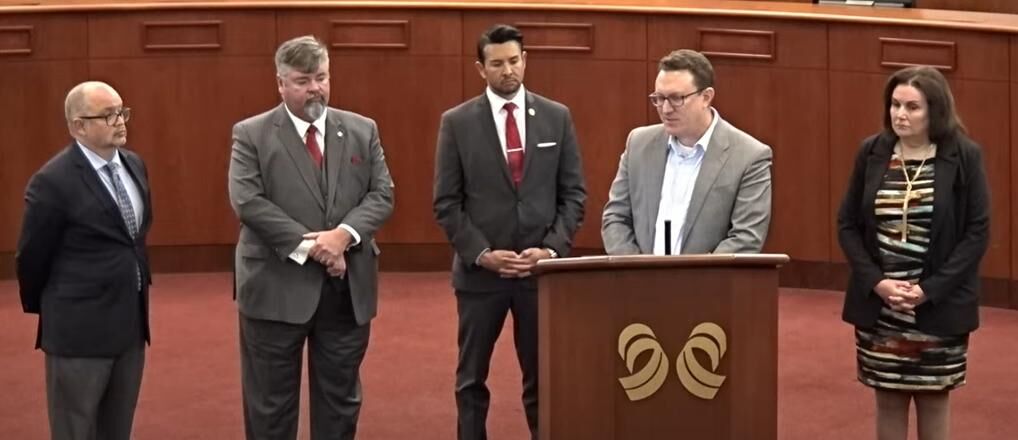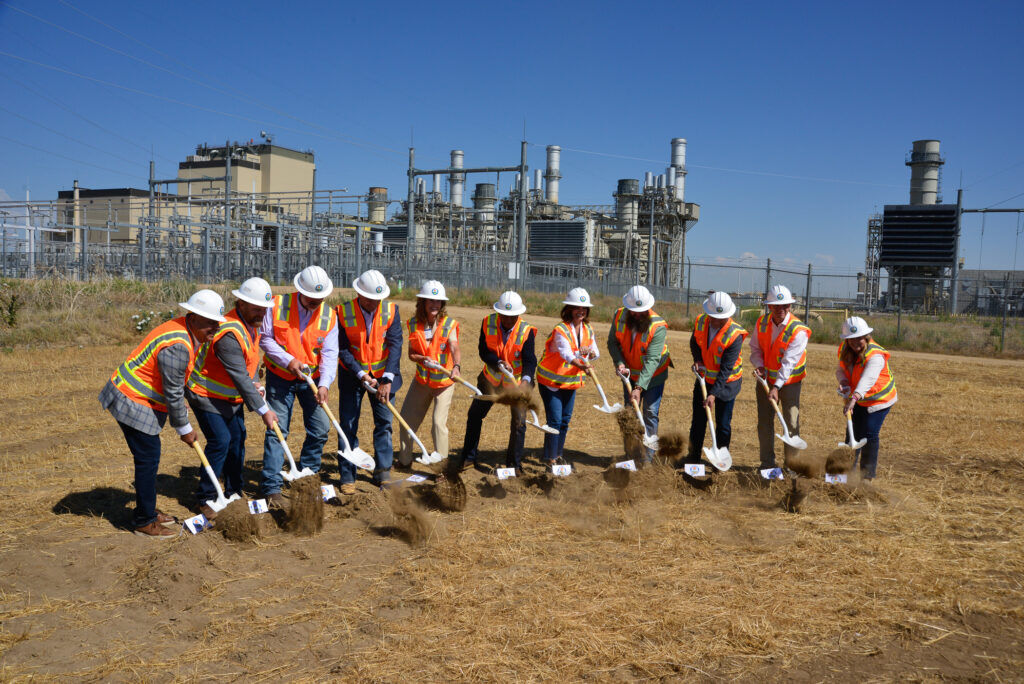State turns down Douglas County’s property tax relief, upsetting Polis and county commissioners

Updated with comments from Sen. Chris Hansen, a member of the state board of equalization.
A state entity whose members were appointed by Gov. Jared Polis on Tuesday rejected a county’s proposal to offer property tax relief – despite the governor specifically asking local governments to step up and do their part in reducing Coloradans’ tax burden.
Polis told reporters he is disappointed in the state board of equalization’s decision to deny the tax relief that Douglas County sought for its taxpayers.
Douglas County officials were furious at the decision, and one likened it to the Grinch stealing Christmas.
After last month’s special session concluded, Polis urged counties and other districts that assess property taxes to offer Coloradans property tax relief.
A handful of counties and other districts responded. Colorado Mountain College, and Larimer and Summit counties temporarily reduced their mill levy rates to provide that relief.
Douglas County decided to do something different: commissioners, acting as the county board of equalization, unanimously agreed to reduce residential property values by 4%, which they said would provide about $223 per home in property tax savings.
The cost to the county’s revenue? About $28 million.
The commissioners, all Republicans, took that action in September.
On Monday, the state board of equalization, which reviews valuations to ensure fair and accurate assessments across the state, rejected that proposal.
The equalization board is made up of three Democrats and two Republicans* with three of the five – a majority – appointed by the governor. The other two members are appointed by the Senate President and House Speaker. The speaker, in fact, represented the House at Monday’s meeting.
State Sen. Chris Hansen, D-Denver, is among the state board of equalization members. He told Colorado Politics Wednesday that Douglas County created an unequal approach to valuation, which is the job of the state board. “They created a situation where across the street – such as on County Line Road – people in the same taxing district, such as a fire district, would be paying differential amounts. That was at the heart of the decision,” Hansen told Colorado Politics. That’s why it was a unanimous 5-0 vote.
If the governor wants to be disappointed, he should be disappointed that they didn’t reduce mill levies, which is what the governor said he wanted, Hansen added.
“There’s nothing to be disappointed here, Douglas County created an unequal approach and that’s totally different from tax relief.”
In a letter to local governments in November, the governor effectively said the property tax relief adopted during a special session is insufficient.
“Now, it’s up to you – local elected officials – to do more, which is why I am urging you to reduce the tax rate (mill levy) in your district,” he said.
Current and former officials who have been dealing with property tax issues for years had appeared annoyed by the governor’s message, with some noting that taxing jurisdictions, in fact, have had that ability for years, effectively saying Polis’ suggestion – that they tackle the crisis – was not helpful.
Given Polis’ public urging that local governments also tackle the property tax crisis, it’s not immediately clearly why his three appointees on the equalization board effectively went against his wishes.
At a news conference on Tuesday, Commissioner Abe Laydon said the state board “stole $28 million” from the taxpayers of Douglas County and compared the group to the “Grinch that stole Christmas.”
“The state board of equalization crept into your living room and snatched that gift away, usurping local control,” he said.
The state board, he added, also stole the right of local governments to make those decisions.
“We are pleased” that the governor agrees with their decision, Laydon said.
Commissioner George Teal called the equalization board “unprofessional.” He added it is “obvious” that Sen. Chris Hansen of Denver and House Speaker Julie McCluskie of Dillon applied “partisan activism” to what should have been an administrative process.
“They were entirely motivated by partisan politics,” he said.
Meanwhile, Commissioner Lora Thomas praised state Property Tax Administrator JoAnn Groff for telling the equalization board that Douglas County followed the law in making that reduction.
The board failed to follow Groff’s direction and advice, Thomas said.
She said she spoke to Polis in October, when the county equalization board made its decision to reduce residential property values, and the governor complimented Douglas County. Thomas quoted the governor as saying that, if all counties had done what Douglas County did, the state wouldn’t need Proposition HH, which went down to defeat a month later.
Proposition HH, which would have used Taxpayer’s Bill of Rights refunds for property tax relief, lost by more than 18 percentage points and won in only six out of the state’s 64 counties.
“I appreciate the governor weighing in on the facts,” Thomas said.
Douglas County Attorney Jeff Garcia suggested that the reason behind the state board’s decision deals with worries over the impact on school budgets. Garcia added that the equalization board might also be sending a message to other counties not to assert their local rights.
The state equalization board meeting showed the board was interested in addressing taxation, not valuation, added Douglas County Assessor Toby Damisch.
That violated its primary function, which is to maintain valuation equity at the state level, Damisch said. It will force the county assessor to raise actual values on 98% of the homes in Douglas County just two weeks before property tax bills go out, he said.
Damisch said he defended the actions of the county equalization board in a presentation to the state board, including an analysis that led to the recommendation to reduce assessments. He also noted both state auditor and Groff found no compliance issues with the county’s decision.
That recommendation was not based on politics or hypothetical scenarios but on a study of the real estate market in Douglas County, which had the highest increase in valuations in the metro area, he said.
The state board ignored those recommendations and claimed the valuations were too low, Damisch said, arguing that. He said the board’s mission is to ensure equalization, and, in its “false judgment,” accomplished the exact opposite.
The action taken by the state board is illegal and the county intends to take legal action, Laydon said.
State law does allow for a challenge, according to Garcia, the county’s lawyer.
But that will require a legal process that won’t be resolved for several months.
Thomas noted the commissioners have one other avenue for relief – the approval of the county’s 2024 budget, slated for Jan. 9. The commissioners could choose to reduce the mill levy, she said, something the county has done five times since she’s been on the board, and which has saved taxpayers $31 million.
The state board of equalization meets again on Jan. 26 and Laydon suggested the state officials take the opportunity to reverse their decision.
Editor’s note: An earlier version of this story incorrectly stated that the governor’s appointees are Democrats. In fact, two are Republicans. The date of the board’s next meeting is Jan. 26 – not Dec. 26.













